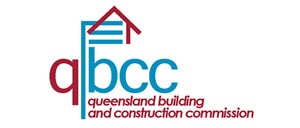 Unlicensed DIY plumbing work has never been legal in Queensland. Unfortunately, too many people think because they can buy plumbing products at Bunnings, then they can carry out the installation or repairs as well. In reality, the ability to undertake unlicensed plumbing work is extremely restricted in Queensland.
Unlicensed DIY plumbing work has never been legal in Queensland. Unfortunately, too many people think because they can buy plumbing products at Bunnings, then they can carry out the installation or repairs as well. In reality, the ability to undertake unlicensed plumbing work is extremely restricted in Queensland.
Technically DIY plumbing is classified as “Unregulated work” in Schedule 3 of the Plumbing and Drainage Regulation 2019 which was called into law on 1 July 2019.
So the “Unregulated work” that an unlicensed person can undertake in respect to plumbing work is not a great deal and for a good reason, as outlined below. Specifically, in Schedule 3, Unregulated work generally is defined as the following work for premises necessary for the following:
- replacing a shower head or domestic water filter cartridge
- replacing a jumper valve or washer in a tap
- repairing or replacing a drop valve washer, float valve washer or suction cup rubber in a toilet cistern
- replacing caps to ground level inspection openings on a sanitary drain
- cleaning or maintaining a ground-level grate for a trap on a sanitary drain
- installing or maintaining an irrigation or lawn watering system downstream from a tap, isolating valve or backflow prevention device on the supply pipe for the watering system
- repairing or maintaining an irrigation system for the disposal of effluent from a greywater use facility or on-site sewage facility
And those seven tasks listed above are the only legal DIY plumbing jobs that you may undertake without a plumbing licence. The only other exception to this is what is referred to as incidental unskilled tasks such as excavating or backfilling a trench
In Queensland, all plumbing work is legally required to be carried out under the Plumbing and Drainage Act 2018, Plumbing and Drainage Regulation 2019, Standard Plumbing and Drainage Regulation 2003 and Queensland Plumbing and Waste Water Code 2019. These acts and regulations are comprehensive in their requirements and outcomes concerning individual plumbing licences and training.
In addition, the Plumbing and Drainage Act 2018 calls into law The Plumbing Code of Australia. This is defined as the document in force from time to time called “National Construction Code volume 3 – Plumbing Code of Australia published by the Australian Building Codes Board. The Plumbing Code of Australia covers every aspect of plumbing and drainage setting out the minimum requirements for the construction, installation, replacement, repair and maintenance of all plumbing systems, specifically:
- Water services
- Sanitary plumbing and drainage systems
- Excessive noise
- Facilities
To be a plumbing contractor in Queensland, a company or individual must also hold appropriate contractors licences by the QBCC under the Queensland Building and Construction Commission Act 1991.
This is in addition to a plumbers occupational licence that allows us at Whywait Plumbing to lawfully carry out particular plumbing or drainage work. This licence ensures that all plumbing contractors have the correct technical qualifications and occupational license. No one other than a licensed plumbing contractor can undertake plumbing work no matter what the value of the work is. The threshold amount of $3000 does not apply to plumbing, drainage or gasfitting that applies to several other trades with QBCC licenses.
It is not worth the risk to undertake unlicensed DIY plumbing. It is illegal, plus it potentially voids your insurance coverage.
Plumbing laws nationwide safeguard the health of the nation. Plumbing is public health, now, and in the future.




